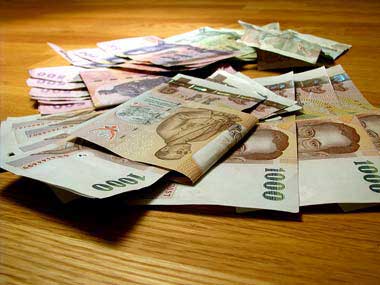The civil uncertainty, that has had the knock-on effect of creating inertia in Thailand's economy, finally appears to be lifting. With the political situation remaining deadlocked, at least investors appear to have ceased their widespread policy of shunning the baht.
Ever since last month, the Thai currency has been looking exceedingly fragile. Participants in currency markets were certainly shaken by anti-government demonstrations that were witnessed in Bangkok's normally bustling streets. At the height of this turmoil, the baht dipped to 32.37 per US dollar, marking a weak point since September. Back then the Thai currency had depreciated due to rampant speculation that the USA was about to scale back its easing program.
The whole situation was prompted when Prime Minister Yingluck Shinawatra attempted to push an amnesty bill through Parliament. This piece of legislation would have allowed the ex-prime minister, Thaksin Shinawatra, to return from a period of self imposed exile by dropping various corruption charges. This was seen as a naked piece of favouritism and nepotism, given that the prime minister and former prime minister are brothers. The end result of this was an increasingly vociferous series of protests from opposition groups.
Much of the opposition's fury was abated when the Prime Minister announced, on December 9, that she would dissolve the lower house in order to hold a general election. While this in itself was not enough to alleviate all of the opposition grievances, it did appear to at least convince short-term currency dealers that the markets were not quite so volatile. Their policy of shorting the baht began to be reversed, with dealers seeking the opportunity to buy back the currency. After reversing course, the baht has strengthened closer to the 32 per dollar line.
Although this general election is scheduled to be held in February 2014, the crisis remains far from resolved. The opposition rejected the poll when it was initially tabled and have yet to commit to taking part. There may be several dealers in the financial markets who are nervously looking back to the last time parliament was dissolved for an election, in 2006. After that vote was boycotted by the opposition, a military coup took place. Were that to happen on this occasion, then one inevitable result would be that investors will no longer look upon the baht so favourably.

